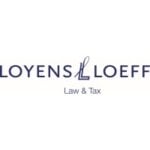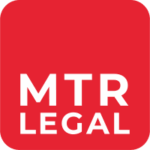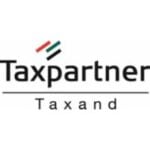-
Is it necessary for a taxpayer to register with the tax authority? Are separate registrations required for corporate income tax and value added tax/sales tax?
Yes, it is necessary to register, and it can be done for both corporate income tax and value added tax / sales tax together. Proposed amendments of law would streamline tax registration even more by having it done automatically upon business registration/licensing.
Enterprises, branches or business premises engaged in production or operation established outside the enterprise’s location, individually-owned businesses, and institutions engaged in production or operation (taxpayers engaged in production or business operations) shall, within 30 days from the date of obtaining a business license, complete tax registration with the competent tax authority in the place of production or business operations or where the tax obligation occurs. Other taxpayers, excluding government agencies and individuals, shall, within 30 days from the date when the tax obligation arises, complete tax registration with the competent tax authority in their locality by presenting the relevant documents. Failure to complete tax registration within the statutory timeframe may result in penalties imposed by the tax authorities, or even revocation of business licenses if the taxpayer still fails to conduct the registration within the grace period given by the tax authorities.
During the tax registration process, there is a step called “tax type determination”. In this step, all applicable taxes—including Corporate Income Tax (CIT) and Value-Added Tax (VAT)—will be registered simultaneously. Upon registration, the taxpayer will be assigned a Unified Social Credit Code, which serves as the unique identifier for all tax filings. However, to be identified as the general VAT taxpayer, the taxpayer should separately apply to the tax authorities for general VAT taxpayer registration.
In addition, regarding tax registration, based on the latest proposed amendments to relevant PRC law, newly established enterprises will obtain a taxpayer identification number when registering their establishment with the market regulation department or other registration authorities. Their business license or other registration certificate shall serve as their tax registration certificate, and tax authorities shall not conduct separate tax registration. Taxpayers shall present their business license or other registration certificate to tax authorities when handling tax filings and other tax-related matters such as tax type determination or general VAT taxpayer determination. The final regulation will depend on the final, promulgated version of the amendments.
-
In general terms, when a taxpayer files a tax return, does the tax authority check it and issue a tax assessment – or is there a system of self-assessment where the taxpayer makes their own assessment which stands unless checked?
China’s tax collection and administration model can be summarized as being based on taxpayer self-reporting and self-assessment, with ex-post verification and risk control by tax authorities as a safeguard. This means that while daily operations primarily rely on taxpayer’s voluntary compliance and taxpayers are obligated to comply, the tax administration maintains a robust system to identify risks and conduct audits when necessary.
Regarding tax investigations or audits, while authorities may initiate them at any time, they typically prioritize high-risk taxpayers based on various risk indicators. Risk indicators are primarily identified through:
- Anomalies flagged by the Golden Tax System IV (a nationwide tax information system);
- International information exchange (such as CRS); and
- Findings from tax audits, etc.
-
Can a taxpayer amend the taxpayer’s return after it has been filed? Are there any time limits to do this?
In China, tax authorities permit taxpayers to proactively rectify errors after discovery. There is no time limit for amending a tax return, but amendments made after the filing deadline may result in late payment interest (LPI) and penalties.
- If the tax return is still within the filing deadline—and no tax payment certificate has been issued nor tax transferred—the taxpayer may cancel the original return and re-file a corrected version. No penalty or LPI will be incurred.
- If the filing deadline has passed, the tax payment certificate has been issued or the tax has been transferred, the taxpayer cannot cancel the filed tax return and can only file a correction for the tax return. If the correction results in underpaid taxes due to the taxpayer’s error, tax authorities may impose LPI at 0.05% per day, calculated from the original tax filing deadline. If the taxpayer fails to complete the declaration obligation within the period ordered by the tax authorities to make corrections, penalties may be incurred.
-
Please summarise the main methods for a tax authority to challenge the amount of tax a taxpayer has paid by way of an initial assessment/self-assessment.
The tax authorities assess whether the tax payable by an enterprise is accurate, true and complete mainly through the following approaches:
- Data comparison
Tax authorities would conduct multi-dimensional checks and comparisons of taxpayers’ tax-relevant data through information systems such as the Golden Tax System IV. These systems screen for enterprises with abnormal filings and trigger alerts if irregularities are detected. Specifically, tax authorities would perform horizontal comparison by comparing the taxpayer’s filing data with industry averages and data of enterprises with similar size. Moreover, vertical comparisons would be conducted to analyse fluctuations in a taxpayer’s historical filing data.
Furthermore, to prevent income splitting or concealing transactions, comprehensive cross-type analysis for tax would be conducted. For instance, they verify whether declared income aligns across key tax categories, such as VAT, CIT, and Stamp Duty (SD). If the discrepancy is significant, the competent tax officer will usually notify the taxpayer through various channels such as information reminders on an electronic tax filing platform or via telephone, and the taxpayer may be asked to provide an explanation or file a corrected return within the time frame set out by the tax authority (usually a few days to a month).
- Screening suspicious signals
Tax authorities conduct thorough screening of suspicious signals by evaluating enterprises’ compliance with tax return filings, the authenticity of financial vouchers, and the proper application of tax policies. Particular scrutiny is given to enterprises exhibiting abnormal tax behaviour, such as prolonged periods of zero tax payable or tax liabilities that significantly deviate from industry averages. Additionally, tax authorities closely monitor enterprises with a high volume of abnormal invoices, those whose key suppliers or customers have become uncontactable, and those engaged in related-party transactions with questionable pricing or involving substantial fund transfers. This comprehensive approach enables tax authorities to identify and address potential non-compliance effectively. After identifying non-compliance issues, the tax authorities will contact taxpayers through various channels and require them to submit reasonable explanations, prepare supporting materials or make corrections within a specified time limit.
- On-site investigations
For enterprises where abnormalities are found, the tax authorities would conduct on-site investigations and interview the taxpayer. The tax authorities may inform the taxpayer through the On-site Investigation and Verification Notice for Tax Return Assessment that two or more tax authorities’ officials will perform on-site verification of the consistency between the filed tax return data and the actual business situation. During on-site interviews, the taxpayer is required to explain the reasons for the abnormalities and provide supporting materials.
-
What are the time limits that apply to such challenges (disregarding any override of these limits to comply with obligations to relief from double taxation under a tax treaty)?
Under China’s current tax laws, the time limit for tax authorities to challenge a company’s tax liability varies depending on the circumstances. The key scenarios and corresponding adjustment periods are outlined below.
Regarding the situation where an enterprise has not paid or underpaid taxes, the recovery period for unpaid or underpaid taxes depends on the nature of the non-compliance.
- Tax Authority Error: If the underpayment results from an error or oversight of the tax authorities, they may recover the tax within three years but cannot impose LPI.
- Non-Intentional Underpayment: The tax authorities may recover the tax within three years, along with a daily LPI of 0.05% of the outstanding amount. In special cases, this period may be extended to five years.
- Tax Evasion, Tax Resistance, or Tax Fraud: There is no time limit.
A different time limitation applies to special tax adjustments on related-party transactions: 10 years. Specifically, if the tax authorities determine that a company’s related-party transactions do not comply with the arm’s length principle, they have the right to make special tax adjustments. Such adjustments may be applied retroactively to reassess and amend those transactions for previous years, with a maximum look-back period of 10 years.
-
How is tax fraud defined in your law?
In China, tax fraud primarily encompasses the following offenses:
- Tax Evasion: Taxpayers who fail to pay or underpay the tax due through the following actions are committing tax evasion:
- Falsifying, altering, concealing, or unlawfully destroying accounting books or vouchers;
- Overstating expenses or underreporting income in financial records; and
- Refusing to file a tax declaration or submitting a false declaration after being notified by tax authorities.
- Tax Fraud: A taxpayer uses tax preferential policies to improperly obtain tax exemptions or export tax rebates by fabricating facts (such as false export reporting) or concealing the truth.
- Tax Resistance: A taxpayer resists tax payment through violent or threatening means against tax authorities.
- VAT Invoice Fraud: Additional offenses involve illegal activities related to VAT invoices, such as issuing, receiving, or using fraudulent invoices to evade tax liabilities.
These violations may lead to administrative penalties, criminal liabilities, or both, depending on the severity of the offense.
- Tax Evasion: Taxpayers who fail to pay or underpay the tax due through the following actions are committing tax evasion:
-
How is tax fraud treated? Does the tax authority conduct a criminal investigation with a view to seeking a prosecution and custodial sentence?
The consequences of tax fraud vary depending on the severity and intent of the offense. Generally, the main penalties include:
- Repayment of all outstanding taxes;
- LPI, typically at a rate of 0.05% per day;
- Administrative penalties; and
- Potential criminal liability, under which the person primarily responsible may face imprisonment—with the most severe cases carrying a sentence of life imprisonment.
The overall process generally proceeds as follows:
Firstly, an administrative investigation is conducted. Tax authorities initiate a tax inspection or audit when suspected tax fraud is identified through routine tax collection and administration, data analysis, etc.
If the taxpayer’s evasion is deemed serious enough to constitute a criminal offense, the case is transferred to the public security organs for criminal investigation. Evidence is gathered through measures such as interrogating suspects, examining bank accounts, verifying the authenticity of invoices, and tracing fund flows. In particularly serious cases, a joint task force consisting of tax and police personnel may be established to conduct coordinated, cross-regional investigations.
Finally, the procuratorate reviews the evidence provided by tax authorities and supplementary materials collected by the public security organs to determine whether the case meets the criteria for prosecution.
-
In practice, how often is a taxpayer audited after a return is filed? Does a tax authority need to have any justification to commence an audit?
In China, tax audits do not have a fixed, well-defined cycle or frequency. Instead, they vary depending on various factors, such as the taxpayer’s risk rating within the tax authorities and the tax authorities’ internal management requirements. In our experience, some taxpayers may face multiple audits every year, while some (highly compliant) taxpayers may not be audited for years.
The initiation of an audit or inspection by the tax authorities is not arbitrary and must be based on statutory grounds and justification. Primary reasons for launching such procedures include but are not limited to:
- Anomalies in declared tax data (such as abnormally low tax burden, consecutive zero filings, etc);
- Reports or complaints (by employees, or third-party);
- Taxpayers’ importance or risk ratings (key tax-source enterprises or taxpayers with lower tax ratings are more likely to be audited); and
- Targeted inspections or industry-wide inspection campaigns (conducted by national, provincial, or municipal tax authorities), etc.
This risk-based approach aligns with the tax authorities’ mandate under PRC law, which authorizes examinations when reasonable grounds for suspicion exist.
-
Does the tax authority have to abide by any standards or a code of conduct when carrying out audits? Does the tax authority publish any details of how it in practice conducts audits?
Tax audits should be based on facts, guided by the law, and adhere to the principles of fairness, justice, openness, and efficiency.
- “Be based on facts” requires that the tax authorities use objective evidence (such as contracts, accounting books, bank statements, logistics documents, etc.) as the basis for determining the nature of a case, prohibiting subjective assumptions or conjecture.
- “Guided by the law” requires that all handling decisions (such as tax recovery, penalties, or referral to judicial authorities) strictly correspond to substantive tax law and procedure.
- “Fairness” requires uniform treatment standards for similar tax violations.
- “Justice” requires that procedures safeguard the taxpayer’s right to state and defend its case.
- “Openness” requires that the inspection or audit process and results be disclosed to the public according to law.
- “Efficiency” requires that inspection or audit processes be completed within statutory time limits, avoiding infringement upon the lawful rights and interests of administrative counterparts.
Generally, tax authorities will disclose relevant laws and policy bases, basic audit procedures, and framework information such as taxpayers’ rights and obligations to protect taxpayers’ right to know and ensure the fairness of tax enforcement.
However, to maintain enforcement effectiveness and prevent evasion and fraud in advance, they do not disclose internal operational details or core criteria used in tax audits, such as specific case selection models, audit techniques, or verification methods.
-
Does the tax authority have the power to compulsorily request information? Does this extend to emails? Is there a right of appeal against the use of such a power?
Yes, tax authorities have the right to request taxpayers to provide relevant tax-related information, but taxpayers have the right to refuse if the information involves business secrets or privacy and is not directly related to taxation. The mandatory general information includes accounting books, accounting vouchers, reports and related materials, as well as documents and supporting materials related to withholding and collection of taxes. With the approval of the director-general of the county-level tax bureau or above, tax authorities also have the right to inspect taxpayers’ deposit accounts and savings accounts. Furthermore, if taxpayers refuse to provide electronic data, the tax authorities may, with the approval of the director of the Inspection Department, use appropriate technical means to directly inspect or extract the data.
Emails are included in the information required to be provided to tax authorities. For taxpayers using electronic information systems for management and accounting, the tax authorities can require them to open these systems or provide copies consistent with the original electronic data and technical documentation of the electronic information systems. This includes electronic data such as emails. In practice, it is common for emails to be examined by tax authorities as part of a company’s business records.
If the taxpayer disagrees with the administrative actions of tax authorities, the taxpayer has the right to seek legal remedies. Where a tax dispute arises between a taxpayer and tax authorities, the taxpayer may apply for administrative reconsideration in accordance with law; if the taxpayer is not satisfied with the decision made after reconsideration, the taxpayer may bring a lawsuit in the competent People’s Court in accordance with law. Administrative litigation must be filed within 15 days from the date of receipt of the reconsideration decision, or the taxpayer may directly bring the lawsuit within 6 months from the date of knowing the specific administrative action.
-
Can the tax authority have the power to compulsorily request information from third parties? Is there a right of appeal against the use of such a power?
Tax authorities are empowered to compel third parties to provide information relevant to a taxpayer’s tax affairs. When conducting lawful tax inspections or audits, tax authorities may investigate taxpayers, withholding agents, and other relevant parties regarding issues related to tax payment, withholding, collection, and remittance. These parties are legally obligated to provide truthful information and supporting documents to the tax authorities. This implies that any entity or individual involved in tax-related matters must cooperate and supply required information during an inspection or audit. In practice, commonly involved third parties include financial institutions, trading partners (such as customers and suppliers), and e-commerce platforms.
Like taxpayers, third parties also retain the right to appeal. Should a third party disagree with a request or believe the action to be unlawful, they may apply for administrative reconsideration. If dissatisfied with the outcome of the reconsideration, they may further initiate an administrative lawsuit in the competent People’s Court.
-
Is it possible to settle an audit by way of a binding agreement, i.e. without litigation?
During a tax audit, the audit cannot be terminated by reaching an agreement. After the tax audit is completed, the tax authority will issue the corresponding legal documents based on the audit results and whether any tax violations have occurred. At the same time, taxpayers have the right to make statements, defend themselves, and request a hearing regarding the tax penalties or handling opinions they face. For any tax disputes that arise, they also have the right to file for administrative reconsideration and administrative litigation.
It is possible to resolve a tax audit dispute through negotiation by concluding a legally binding settlement agreement. After a taxpayer submits a reconsideration application but before a reconsideration decision is made, tax authorities and taxpayers may reach a legally binding settlement agreement. Current local normative documents provide detailed provisions on settlement procedures, agreement formalities, and validity determination, offering guidance for practical operations. Generally, the settlement agreement should include the following:
- Disputed matters (e.g., tax amount to be paid or penalty multiple);
- Performance period (e.g., payment of taxes owed within 30 days); and
- Rights and obligations of both parties (e.g., taxpayer’s commitment to forgo further reconsideration or tax authorities’ termination of audit).
However, the settlement agreement is limited to situations where the tax authorities enjoy discretionary power, such as the range of administrative penalties, tax assessment, and determination of CIT taxable income rates. Matters involving manifestly unlawful acts or concerning national tax sovereignty (e.g., cross-border tax avoidance cases requiring the initiation of a general anti-avoidance investigation) cannot be resolved through settlement.
The settlement agreement is legally binding on both the taxpayer and the tax authorities. The taxpayer shall pay the taxes, penalties, or adjust filings as agreed. The tax authorities shall terminate the audit procedures and shall not impose penalties for the same facts (except where new evidence outside the scope of the settlement agreement emerges). After the settlement agreement takes effect, the taxpayer shall not apply for reconsideration or initiate litigation again based on the same facts (except to the extent the agreement involved fraud, duress, or illegality). If the taxpayer fails to perform the agreement, the tax authorities may apply to the court for compulsory enforcement. If the tax authorities breach the settlement agreement, the taxpayer may initiate an administrative lawsuit demanding performance. However, if the court determines the settlement agreement harms national tax interests (e.g., voluntarily abandoning tax recovery), it will revoke the agreement and reinstate the original reconsideration procedures, requiring the reconsideration authorities to reissue a decision.
-
If a taxpayer is concerned about how they are being treated, or the speed at which an audit is being conducted, do they have any remedies?
For tax audits (or tax inspection), generally speaking, an inspection bureau shall make a decision of administrative treatment or a penalty or a conclusion of no tax offense within 90 days of the date of case filing. If the case is complicated and requires an extension, the time limit can be extended by no more than 90 days (and only with the approval of the director of the relevant tax bureau); in special circumstances or in the case of force majeure requiring a further extension, it shall be approved by the deputy director of the tax bureau at the next higher level, and a reasonable extension shall be determined.
The taxpayers can also safeguard their rights through three remedies: procedural checks and balances (statement or defence), administrative supervision (complaints), and judicial remedies (compensation/remedies). The details are as follows:
- Procedural Checks and Balances (statement or defence)
If a taxpayer believes it is being treated unfairly, it has the right to make statements and present arguments regarding the decisions that tax authorities make. If the taxpayer has sufficient evidence to prove that its actions were lawful, tax authorities are disallowed from imposing administrative penalties on the taxpayer. Even if the taxpayer’s statements or arguments are insufficient or unreasonable, tax authorities must explain the reasons for imposing administrative penalties. Tax authorities are prohibited from imposing heavier penalties because of a taxpayer’s arguments.
- Administrative Supervision (complaints)
If the taxpayer believes they are being treated unfairly, taxpayers also enjoy the right to report and lodge complaints against tax authorities for violations of tax laws and administrative regulations, such as tax officers soliciting or accepting bribes, abusing their power for personal gain, neglecting their duties, under-collecting or failing to collect taxes, abusing their authority to over-collect taxes, or intentionally causing difficulties.
- Judicial Redress (compensation/remedies)
When tax authorities’ misconduct infringes upon the legitimate rights and interests of taxpayers and other parties involved in tax matters, taxpayers and other parties involved in tax matters may initiative court litigation to obtain administrative compensation from tax authorities.
-
If a taxpayer disagrees with a tax assessment, does the taxpayer have a right of appeal?
If a taxpayer disagrees with a tax assessment, it has the right of appeal to court, but should first apply for administrative reconsideration. Specifically, if a taxpayer disagrees with a tax treatment decision made by tax authorities (e.g., the amount of tax to be supplemented), it shall first pay the taxes and any LPI in full as determined by the tax decision (or it shall provide a legally valid guaranty). Only after fulfilling the above obligation may the taxpayer apply for administrative reconsideration to the higher-level tax authorities in accordance with the law. If a taxpayer is still dissatisfied with the administrative reconsideration decision, it has the right of initiate an administrative lawsuit with the court.
Actually, if a taxpayer disagrees with a penalty decision, compulsory enforcement measure, or tax preservation measure imposed by tax authorities, it may choose to either apply first for administrative reconsideration or directly initiate a lawsuit with the court.
-
Is the right of appeal to an administrative body (independent or otherwise) or judicial in nature (i.e. to a tribunal or court)?
Regarding tax treatment decisions made by tax authorities, taxpayers must first apply for administrative reconsideration with the higher-level tax authorities before they may initiate a lawsuit in court.
Regarding penalty decisions, compulsory enforcement measures, or tax preservation measures, taxpayers have the right to either appeal to the higher-level tax authorities or directly file a lawsuit in court.
-
Is the hearing in public? Is the decision published? What other information about the appeal can be accessed by a third party/the public?
Generally, administrative reconsideration hearings are in public. However, hearings involving national secrets, trade secrets, or personal privacy are conducted privately. Hearing records are generally not publicly disclosed, but may be accessible by query.
Regarding a decision of administrative reconsideration, if the act of applying for administrative reconsideration should be disclosed, administrative bodies have an obligation to disclose their decision.
For appeals handled by courts, the hearings and the decisions are generally public (unless they involve national secrets, trade secrets, or personal privacy), although in practice many decisions are not proactively published.
- Rules of hearings in administrative reconsideration
The hearing is a trial procedure for ascertaining the facts of a case, and only a hearing record will be issued. After a hearing, the tax authorities will issue a corresponding administrative reconsideration decision in accordance with the law and serve it on the taxpayer through prescribed procedures. The specific procedural rules for hearings are established by local governments.
- Public disclosure of administrative reconsideration decisions
The administrative body is responsible for disclosing administrative reconsideration decisions. If the administrative act under reconsider should not be disclosed (e.g., because national secrets, trade secrets, or personal privacy are involved), it shall not be disclosed. The specific public disclosure rules for administrative reconsideration decisions are established by local governments.
Third parties or the public may typically access appeal-related information through the public information queries and government information queries.
- Public information queries: Tax-related information legally subject to disclosure (e.g., tax policies, major tax violation cases, or abnormal taxpayer designations) may be queried via public channels such as newspapers, official websites, and information bulletin boards.
- Government information queries: Citizens or other organizations may request disclosure of appeal-related information from tax authorities. Tax authorities shall determine disclosure based on the request content and relevant regulations. However, information involving national secrets, trade secrets, or personal privacy may be lawfully withheld.
Please note that disclosure levels and access methods may vary by region and case specifics, subject to local tax authority regulations and operational practices.
-
Is the procedure mainly written or a combination of written and oral?
Administrative reconsideration procedures are carried out primarily in written form. Applicants (taxpayers) shall submit written applications stating grounds and factual bases. The respondent (administrative reconsideration body) shall provide a written reply with evidence, legal basis, and supporting documents. With regard to major and complicated cases, if a taxpayer requests or an administrative reconsideration body deems it necessary, such cases may be tried by means of hearing.
Administrative lawsuit procedures combine written and oral procedures. In the pleading stage, the plaintiff (taxpayer) submits a written complaint specifying claims, facts, and legal grounds, and the defendant (tax authorities) files a written defence with evidence. During court hearings, both parties orally present arguments, cross-examine evidence, and engage in court debates. Judges may question parties directly, prioritizing oral interaction.
-
Is there a document discovery process?
China’s tax dispute resolution procedures (e.g., administrative reconsideration and administrative lawsuits) incorporate rules related to evidence collection and exchange. However, the Chinese legal system does not formally recognize a “document discovery” process.
- Evidence Rules in Administrative Reconsideration
The respondent (tax authorities that made the challenged decision) shall, within 10 days from the day of receiving a copy of the reconsideration application, submit a written reply along with evidence, legal basis, and supporting documents for the administrative act. This requires the respondent to proactively disclose evidence supporting their decision (e.g., assessment documents, tax calculation basis, or procedural records).
- Evidence Rules in Administrative Lawsuits
The defendant (tax authorities) shall provide evidence and normative documents underlying the administrative act and may not independently collect new evidence from the plaintiff (taxpayer), third parties, or witnesses during litigation. The plaintiff may apply to the court to compel the defendant to produce evidence in its possession, and failure to comply may result in adverse consequences for the defendant. Plaintiffs or third parties may apply to the court to obtain the following evidence:
- Evidence preserved by state organs and accessible only via court order.
- Evidence involving state secrets, trade secrets, or personal privacy.
- Other evidence impossible to collect independently due to objective causes.
It should be noted that China’s administrative evidence collection follows a “doctrine of function and power” model, where administrative bodies or courts primarily control evidence gathering, with limited party initiative. Although taxpayers may apply to obtain evidence, they lack the right to compel comprehensive document disclosure (unlike common law mechanisms such as subpoenas or written interrogatories). Applicants/plaintiffs may only request specific evidence under defined conditions (e.g., evidence held by the counterparty and favourable to their case), not demand unconditional disclosure of all relevant documents.
-
Are witnesses called to give evidence?
Witnesses can be called into court to provide evidence (statements), but administrative reconsideration does not have explicit procedural provisions for calling witnesses to provide evidence.
- Administrative Reconsideration
Current administrative reconsideration laws and regulations do not have explicit provisions on the procedure for calling witnesses to provide evidence. However, reconsideration bodies shall have the power to conduct investigations and collect evidence from relevant entities and individuals. Taxpayers may provide witness information to the reconsideration bodies, which decide whether to investigate the witnesses.
- Administrative Lawsuit
Any party to an administrative lawsuit who seeks to apply to call on a witness to appear in court and give statements as evidence shall submit an application before the expiration of the time limit for producing evidence and obtain the approval of the court concerned. Thus, in tax litigation, a plaintiff (taxpayer) has right of formally applying for witness examination to clarify facts. Courts shall evaluate witness relevance, credibility, and necessity before granting permission.
-
Is the burden on the taxpayer to disprove the assessment the subject of the appeal?
Even if a taxpayer objects to a tax assessment, the tax authorities bear the burden of proof, whether in administrative reconsideration or administrative lawsuit.
During administrative reconsideration and administrative litigation, the respondent (tax authorities) shall have the burden of proof for the tax assessment they performed. Taxpayers may submit evidence to disprove the assessment. If the evidence is valid, it will be supported by law. However, even if the evidence is not valid, it does not exempt the tax authorities from their burden of proof.
-
How long does an appeal usually take to conclude?
The law sets out the following time limits for appeals, although they are not always followed in practice (and litigation not infrequently takes double or triple the stipulated time):
- Administrative Reconsideration:
- For cases under ordinary procedures, a decision shall be made within 60 days from the date of acceptance, unless other laws specify a shorter period.
- For cases under simple procedures, a decision shall be rendered within 30 days from acceptance.
- In complex cases, an extension of up to 30 days may be approved by the responsible person of the reconsideration body, with written notification provided to both the applicant and the respondent.
- Administrative Lawsuit – First Instance:
- The court shall issue a first-instance judgment within 6 months from the date of case docketing.
- Extensions due to special circumstances require approval from the higher court.
- Cases under simple procedures shall be tried by a single judge, with a judgment rendered within 45 days.
- Administrative Lawsuit – Second Instance (Appeal):
- The court shall render a final judgment within 3 months from receipt of the appeal.
- Extensions due to special situations require approval from the higher court.
- Administrative Reconsideration:
-
Does the taxpayer have to pay the assessment pending the outcome of the appeal?
Yes, where a tax dispute arises between a taxpayer, withholding agent or tax payment guarantor and the tax authorities, the former shall pay or remit the amount of tax payable and the surcharge thereon, or provide the necessary guaranty, in accordance with the decisions made by the tax authorities on tax collection, before the party may apply for administrative reconsideration in accordance with law; if the party is not satisfied with the decision made after reconsideration, it may bring a lawsuit in the competent People’s Court in accordance with law. Therefore, the taxpayer should pay the assessment pending the outcome of the appeal.
Pursuant to the latest proposed amendments to the relevant PRC law, taxpayers may be able to defer payment of the assessment until the initiation of administrative litigation, but the final regulation will depend on the final, promulgated version of the amendments.
-
Are there any restrictions on who can conduct or appear in the appeal on behalf of the taxpayer?
The taxpayer can entrust agents to conduct or appear in administrative reconsideration and administrative litigation. The detailed regulations are as follows.
- Administrative Reconsideration
Any citizen, legal person or any other organization that files an application for administrative reconsideration is an applicant. If a citizen who has the right to apply for administrative reconsideration is deceased, his or her close relatives may apply for administrative reconsideration. If a citizen who has the right to apply for administrative reconsideration is incompetent or with limited capacity for civil conduct, his or her statutory agent may apply for administrative reconsideration on his or her behalf. If a legal person or other organization that has the right to apply for administrative reconsideration is terminated, the person who succeeds to its rights and obligations may apply for administrative reconsideration.
Any other citizen, legal person or any other organization that has an interest in a specific administrative act, for the administrative reconsideration of which an application has already been filed may file a request for participation in the administrative reconsideration as a third party.
The applicant and the third party may delegate agents (including lawyers, grassroots legal service workers, or other agents) to participate in the administrative reconsideration.
- Administrative Litigation
The rules for appearance in administrative litigation are basically the same as above, for administrative reconsideration. In addition, any citizen with no capacity to take part in litigation shall have one or more legal representatives who will act on his or her behalf in the litigation. If the legal representatives try to shift their responsibilities onto each other, the people’s court may appoint one of them as the representative of the principal in litigation. Each party or legal representative may entrust one or two persons to represent him or her in litigation. The following people may be entrusted as agents in litigation: lawyers and providers for primary-level legal service, close relatives or staff, and citizens recommended by the parties’ communities, enterprises and relevant social groups.
-
Is there a system where the “loser pays” the winner’s legal/professional costs of an appeal?
Legal/professional costs (mainly attorney fees) are generally borne by the party who incurs them, regardless of winning or losing. However, where any party concerned commits any obviously improper act such as abusing its right of action and delaying the performance of their duty of litigation, resulting in any direct loss to the other party to the litigation or any third party, the relevant people’s court may support reasonable claims filed by the without-fault party for compensation of reasonable attorney fees.
Litigation costs such as case acceptance fees, application fees and other expenses paid to a court are generally borne by the losing party. Where the plaintiff prevailed in part and lost in part, both parties shall bear a proportionate share of the litigation costs.
-
Is it possible to use alternative forms of dispute resolution – such as voluntary mediation or binding arbitration? Are there any restrictions on when this alternative form of dispute resolution can be pursued?
Tax disputes between taxpayers and tax authorities can also be resolved through mediation or settlement. Administrative reconsideration authorities may, when handling administrative reconsideration cases, conduct mediation. Additionally, the parties concerned may voluntarily reach a settlement before a decision on administrative reconsideration is made. However, mediation shall not be conducted in administrative cases heard by people’s courts, except for cases under which administrative compensation or reimbursements are made and administrative organs exercise discretion stipulated in laws and regulations.
Tax disputes cannot be resolved through arbitration. Administrative disputes that shall be handled by administrative organs as prescribed by law cannot be arbitrated. Tax disputes are disputes that shall be handled by administrative authorities and are therefore not subject to arbitration.
-
Is there a right of onward appeal? If so, what are all the levels of onward appeal before the case reaches the highest appellate court.
Yes, taxpayers will have the right of onward appeal and the overall appeal procedures are generally as follows.
First instance: The first instance is generally under the jurisdiction of the grassroots people’s court, but if the case is important and complicated, the first instance may be directly under the jurisdiction of the intermediate people’s court, the higher people’s court or even the Supreme People’s Court.
Second instance: A party who is dissatisfied with a first-instance judgment or ruling may file an appeal to the people’s court at the next higher level. The deadline for filing an appeal is within 15 days after the first-instance judgment is served, or within 10 days after the first-instance ruling is served. The court of second instance is generally the court of last instance. However, if a party believes there is a definite error in a legally effective judgment or ruling, it may apply for a retrial in accordance with the law (i.e., initiate the judicial supervision procedure). The retrial procedure is not a normal appeal, but rather a special remedy procedure for correcting errors in legally effective judgments.
Protest: In addition, where the Supreme People’s Procuratorate discovers that a legally effective judgment or ruling rendered by a people’s court at any level (or a higher-level people’s procuratorate discovers that a legally effective judgment or ruling rendered by a lower-level people’s court) has any circumstance that may affect the outcome or fairness of the case, or that a mediation document undermines the national interests or the public interests, the procuratorate may lodge a protest (i.e., another judicial supervision procedure).
-
What are the main penalties that can be applied when additional tax is charged? What are the minimum and maximum penalties?
Main Penalties include late penalty interest (LPI) and penalties. Where an offense constitutes a crime, criminal liability may be pursued according to law.
If a taxpayer fails to pay taxes within the time limit as prescribed in provisions, or a withholding agent fails to remit taxes within the time limit as prescribed in provisions, the tax authorities shall, in addition to ordering the taxpayer or withholding agent to pay or remit the taxes within a prescribed time limit, impose interest on a daily basis at the rate of 0.05% of the amount of tax in arrears, commencing on the day of default.
Tax Evasion
For taxpayers who evade taxes, tax authorities may seek payment of the unpaid or underpaid taxes and impose LPI, and concurrently impose a penalty not less than 50% of and not more than five times the amount of taxes unpaid or underpaid. For cases that constitute crimes, criminal liability may be investigated according to law.
If a taxpayer fails to declare tax returns, fails to pay or underpays the taxes payable, the tax authorities may seek payment of the unpaid or underpaid taxes and LPI, and concurrently impose a penalty not less than 50% of and not more than five times the amount of taxes unpaid or underpaid.
If a defaulting taxpayer employs means of transferring or concealing property to obstruct tax authorities in seeking tax arrears, the tax authorities shall seek payment of the taxes payable and LPI, and concurrently impose a penalty not less than 50% of and not more than five times the amount of taxes payable. In cases that constitute crimes, criminal liability may be investigated according to law.
Tax Fraud
If a taxpayer, by means of false declaration of exports or other deceitful means, defrauds the State of export tax refunds, tax authorities shall seek payment of the tax refund defrauded and concurrently impose a penalty not less than one time and not more than five times the amount of tax refund defrauded. In cases that constitute crimes, criminal liability may be investigated according to law. Therefore, for tax refund fraud, the minimum penalty is a penalty of one time the amount defrauded, and the maximum penalty is a penalty of five times the amount defrauded. Where the case constitutes a crime, criminal liability may be pursued according to law.
Tax Resistance
A refusal to pay taxes by means of violence or threats shall amount to tax refusal, and the tax authorities may, in addition to pursuing payment of the amount of taxes refused to be paid and imposing LPI, pursue criminal liability according to law. Where the case is less serious and does not constitute a crime, the tax authorities shall pursue payment of the amount of taxes refused to be paid and impose LPI, plus impose a penalty of not less than one time and not more than five times the amount of taxes refused to be paid.
-
If penalties can be mitigated, what factors are taken into account?
If it is a first-time violation and the offense is of a minor nature, and the taxpayer takes the initiative to correct it before the tax authorities discover it or corrects it within a prescribed time limit, no administrative penalty will be imposed.
Administrative penalties can also be mitigated or reduced at the discretion of the tax authorities. Factors considered include:
- Proactively eliminating or mitigating the harmful consequences of the illegal act, i.e., taking the initiative to pay the underpaid taxes and LPI for overdue tax;
- Committing the illegal act under coercion, i.e., the individual’s subjective intention was not to violate tax law, but the individual’s personal or property safety was threatened; and
- Contributing to the tax authorities in investigating and handling violations, i.e., actively assisting the tax authorities in investigating illegal acts and providing useful evidence.
-
Within your jurisdiction, are you finding that tax authorities are more inclined to bring challenges in particular areas? If so, what are these?
- High-income individuals such as celebrities and live-streamers
With the development of the internet and changes in consumers’ shopping habits, many live-streamers have earned substantial incomes by selling goods and providing services through live-streaming. Many celebrities have also earned increasingly higher salaries through live-streaming or film and television appearances. Since this category of people is prone to splitting contract income and utilizing tax havens to avoid taxes, whether these high-income individuals have paid their individual income tax in accordance with the laws is a key concern for tax authorities
- Offshore trade of e-commerce enterprises
E-commerce enterprises involved in cross-border trade are eligible for tax refund policies by making export declarations for their export business. Therefore, there is possibility that those enterprises would make fraudulent declarations for export tax refund by forging export sales orders and invoices. Furthermore, when selling goods, the owners of those e-commerce enterprises may collect sales revenue through personal accounts on third-party online-payment platforms (such as WeChat and Alipay), resulting in underpayment of CIT.
- High-tech enterprises
High-tech enterprises can pay CIT at a rate of 15%. However, they must meet specific requirements to continue to be recognized as a high-tech enterprise and enjoy this CIT rate. Tax authorities monitor whether high-tech enterprises still meet those requirements in the specific tax years. If they do not meet those requirements but still try to utilize the policies, they may face penalties such as LPI for overdue tax, plus penalties.
- Enterprises located in areas that enjoy regional preferential tax policies
Enterprises in special areas such as Free Trade Zones and the Lin-gang Special Area enjoy preferential tax policies regarding CIT and offshore trade. To utilize preferential tax policies, some “shell enterprises” are incorporated in these preferential areas to conduct business operations without commercial substance or legitimate purposes, even issuing false invoices. Therefore, tax authorities will focus on whether enterprises that are located in these special areas have commercial substance in their business and operations.
- Enterprises with cross-border trades
Cross-border transactions between related-parties are among the areas that attract the attention of tax authorities. Whether cross-border transactions have followed the arm’s length principle and are in accordance with laws and regulations are key issues that would be focused on by tax authorities.
-
In your opinion, are there any areas which taxpayers are currently finding particularly difficult to deal with when faced with a challenge by the tax authorities?
In general, when facing challenges from tax authorities, it is necessary to have a wealth of tax expertise. This will enable taxpayers to respond comprehensively to questions or challenges raised by tax authorities, thereby avoiding higher taxes, penalties, and LPI that may arise from failure to respond or inaccurate responses in the early stages. Such expertise will also help taxpayers to comply with their tax obligations and avoid challenges from tax authorities. The following are areas with particular difficulties:
- In overseas payments, if applicable tax treaties are in place, there are difficulties in determining factors such as the beneficial owner.
- In related-party transactions, if there are no comparable transaction prices for similar technologies in the market and future cash flows generated by the technology are uncertain, pricing of the intangible assets may also be subject to investigation from tax authorities.
- Tax risks accumulated through “tax planning” measures such as preferential rate taxation and tax rebates in the early stages may arise precipitously after the tightening of supervision.
- With the development of the internet, many companies no longer need a physical location and can provide consulting and information technology services to cross-borders clients, or even generate revenue from the sale of software products and e-books. In such cases, companies may face disputes with tax authorities regarding whether they have a permanent establishment.
-
Which areas do you think will be most likely to be the subject of challenges and disputes in the next twelve months?
- The way to recognize text, images, and other works generated by Artificial intelligence (AI) as personal intangible assets? If those works are leased or transferred, how should their tax payable be calculated?
Many illustrators and novelists collaborate with AI to create works. For example, the author provides ideas to the AI, which then the AI uses to create a draft. The author then modifies the AI-generated draft to create the final work. Under this creative model, if the author sells novels, illustrations, or other works co-created with AI, the income generated could lead to tax disputes. The author may have generated the ideas based on AI suggestions, and the actual writing or drawing may be largely done by AI, hence the question arises: should the income generated from the sale of such works be divided between the author and the model provider, and how should the income tax payable be determined. These issues are likely to attract increasing attention.
- How can the “tips” received by online live-streamers through various media channels be reasonably converted into income?
With the development of live-streaming e-commerce, viewers have more and more ways to give tips to live-streamers. The non-monetary economic benefits received by online live-streamers through tips need to be converted into cash according to the policies of the platforms and their market value. The appropriateness of the approaches for doing this conversion directly impacts the determination of the amount of income. Individual income includes income in cash, income in kind, income in negotiable securities and income in economic benefits of other forms; for income in kind, the amount of taxable income shall be calculated based on the price indicated on the certificate obtained; if there is no certificate for income in kind or the price indicated on the certificate is manifestly low, the amount of taxable income shall be assessed by reference to the market price. For income in economic benefits of other forms, the amount of taxable income shall be assessed by reference to the market price. Therefore, the economic benefits received by live-streamers in the form of physical objects should also be determined or calculated as taxable income for individual income tax purposes based on the market price. However, physical tips are different from online tips since online tips have digital transaction records, while physical tips may lack such records. Therefore, tax authorities are likely to strengthen their oversight of the different sources of income for live-streamers and similar operators.
- With the popularity of payment methods supported by non-financial institutions, how can the tax authorities monitor the payment and receipt through personal accounts for high-income individuals?
With the development of social media platforms, new payment methods are emerging, including the transferring of both monetary and non-monetary forms of economic benefits. High-income individuals (such as live-streamers) are likely to use private accounts registered on these social media platforms to receive payments. Given the high incomes of these groups, tax authorities may be concerned about an inability to properly monitor them and thus potential failure in recognizing their personal income.
China: Tax Disputes
This country-specific Q&A provides an overview of Tax Disputes laws and regulations applicable in China.
-
Is it necessary for a taxpayer to register with the tax authority? Are separate registrations required for corporate income tax and value added tax/sales tax?
-
In general terms, when a taxpayer files a tax return, does the tax authority check it and issue a tax assessment – or is there a system of self-assessment where the taxpayer makes their own assessment which stands unless checked?
-
Can a taxpayer amend the taxpayer’s return after it has been filed? Are there any time limits to do this?
-
Please summarise the main methods for a tax authority to challenge the amount of tax a taxpayer has paid by way of an initial assessment/self-assessment.
-
What are the time limits that apply to such challenges (disregarding any override of these limits to comply with obligations to relief from double taxation under a tax treaty)?
-
How is tax fraud defined in your law?
-
How is tax fraud treated? Does the tax authority conduct a criminal investigation with a view to seeking a prosecution and custodial sentence?
-
In practice, how often is a taxpayer audited after a return is filed? Does a tax authority need to have any justification to commence an audit?
-
Does the tax authority have to abide by any standards or a code of conduct when carrying out audits? Does the tax authority publish any details of how it in practice conducts audits?
-
Does the tax authority have the power to compulsorily request information? Does this extend to emails? Is there a right of appeal against the use of such a power?
-
Can the tax authority have the power to compulsorily request information from third parties? Is there a right of appeal against the use of such a power?
-
Is it possible to settle an audit by way of a binding agreement, i.e. without litigation?
-
If a taxpayer is concerned about how they are being treated, or the speed at which an audit is being conducted, do they have any remedies?
-
If a taxpayer disagrees with a tax assessment, does the taxpayer have a right of appeal?
-
Is the right of appeal to an administrative body (independent or otherwise) or judicial in nature (i.e. to a tribunal or court)?
-
Is the hearing in public? Is the decision published? What other information about the appeal can be accessed by a third party/the public?
-
Is the procedure mainly written or a combination of written and oral?
-
Is there a document discovery process?
-
Are witnesses called to give evidence?
-
Is the burden on the taxpayer to disprove the assessment the subject of the appeal?
-
How long does an appeal usually take to conclude?
-
Does the taxpayer have to pay the assessment pending the outcome of the appeal?
-
Are there any restrictions on who can conduct or appear in the appeal on behalf of the taxpayer?
-
Is there a system where the “loser pays” the winner’s legal/professional costs of an appeal?
-
Is it possible to use alternative forms of dispute resolution – such as voluntary mediation or binding arbitration? Are there any restrictions on when this alternative form of dispute resolution can be pursued?
-
Is there a right of onward appeal? If so, what are all the levels of onward appeal before the case reaches the highest appellate court.
-
What are the main penalties that can be applied when additional tax is charged? What are the minimum and maximum penalties?
-
If penalties can be mitigated, what factors are taken into account?
-
Within your jurisdiction, are you finding that tax authorities are more inclined to bring challenges in particular areas? If so, what are these?
-
In your opinion, are there any areas which taxpayers are currently finding particularly difficult to deal with when faced with a challenge by the tax authorities?
-
Which areas do you think will be most likely to be the subject of challenges and disputes in the next twelve months?



















